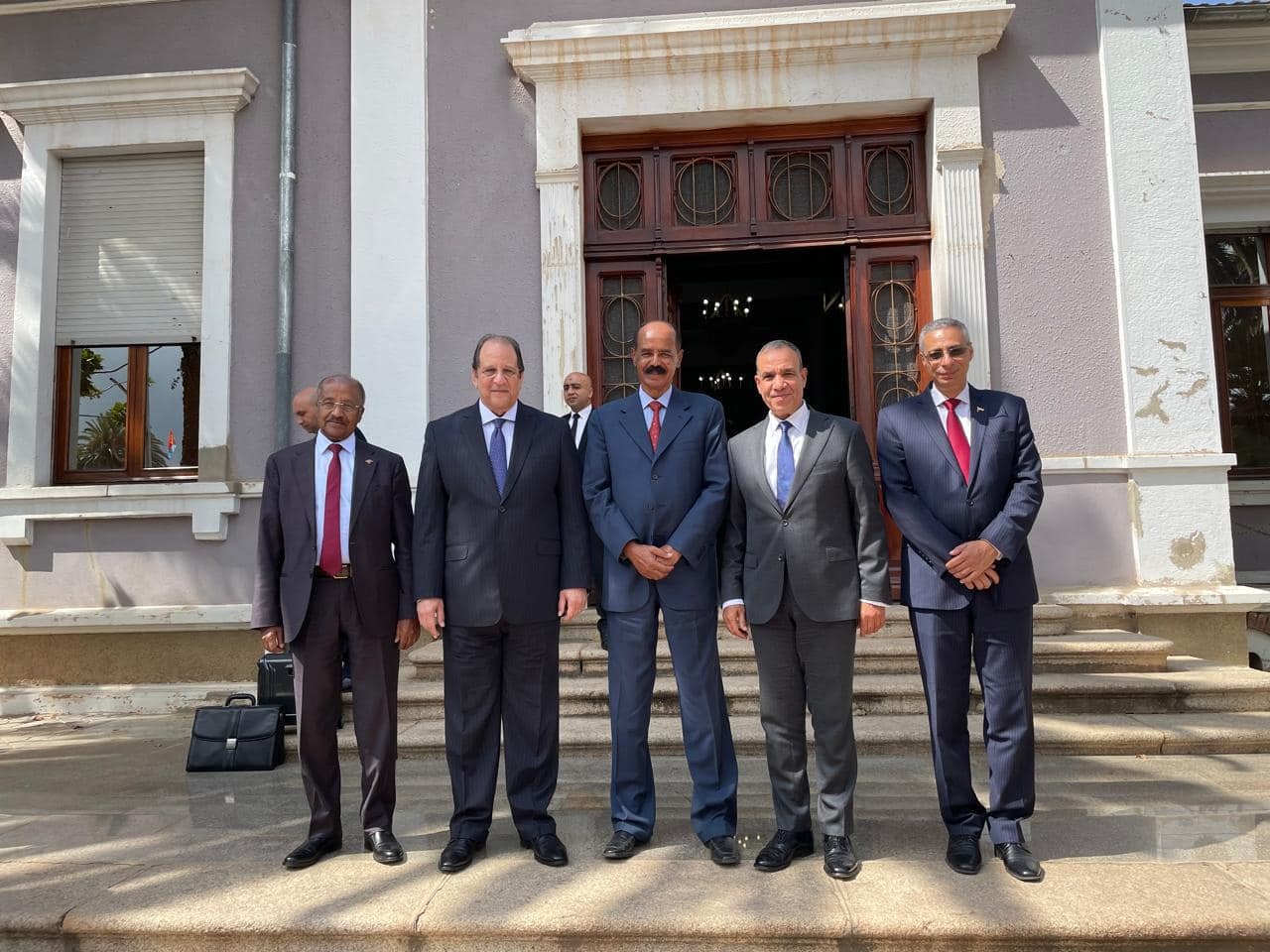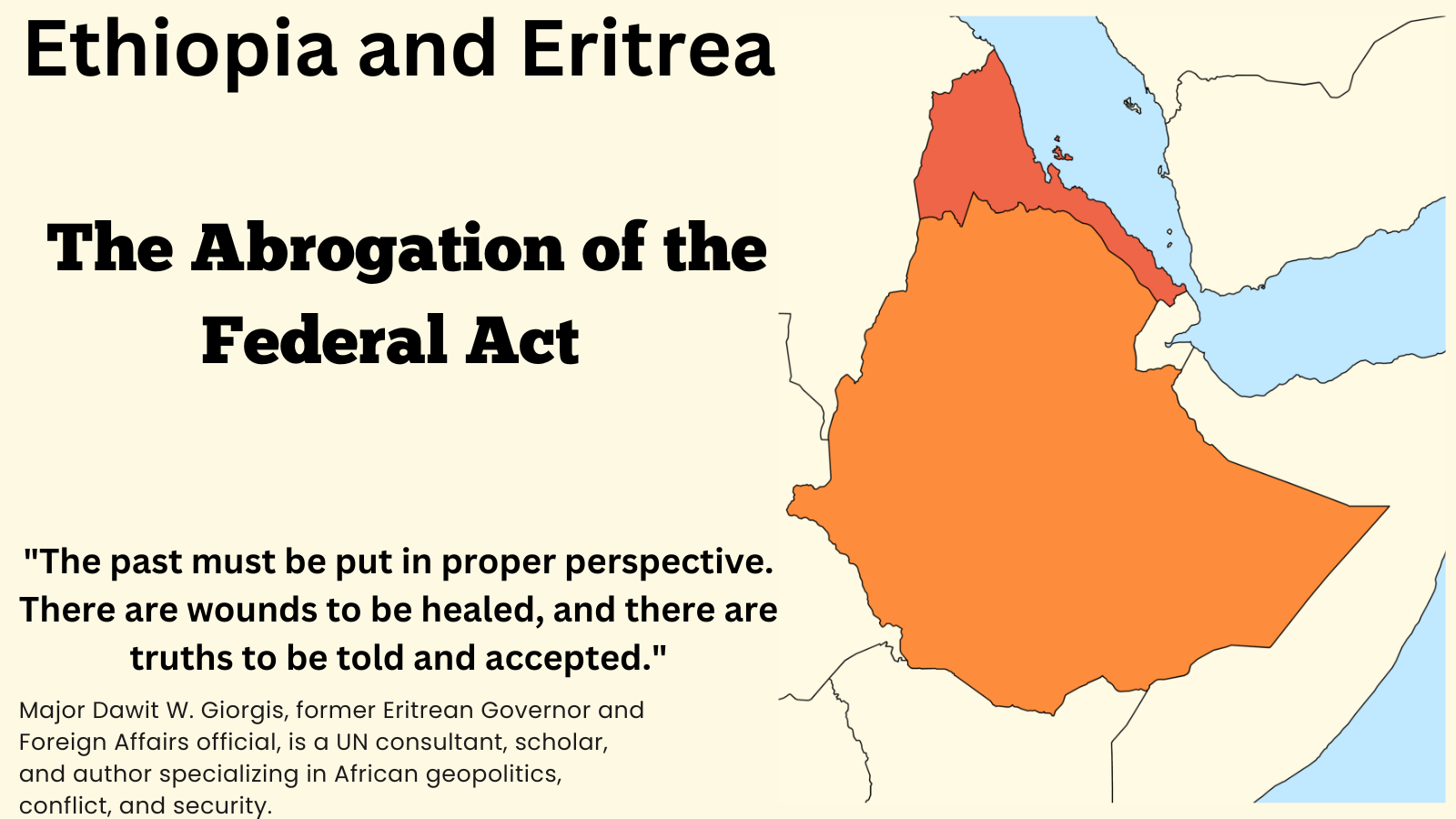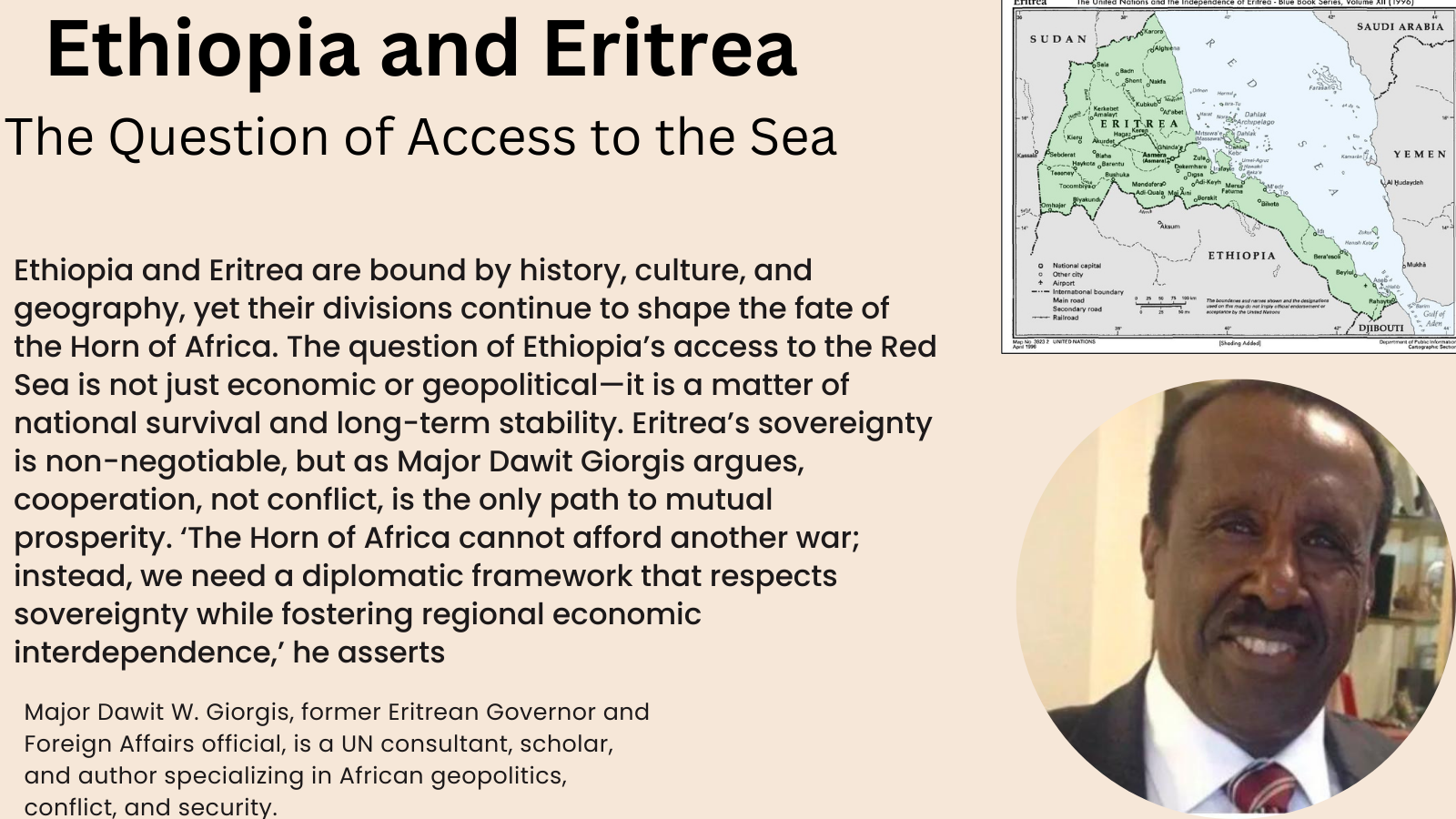Egypt and Eritrea’s Military Cooperation – A Strategic Shift in the Red Sea and Horn of Africa
Egypt and Eritrea’s Military Cooperation – A Strategic Shift in the Red Sea and Horn of Africa

Egypt and Eritrea are advancing towards a military cooperation and intelligence-sharing deal, a development that carries significant geopolitical implications for the Red Sea region and the broader Horn of Africa. These talks, initiated during a high-profile visit by Egyptian officials to Eritrea, reflect Egypt’s broader strategy of cementing influence in a region that is increasingly fraught with tension and competing powers.
At the heart of this potential agreement is a shared interest in protecting Red Sea shipping routes, vital to global trade and energy supplies. The Red Sea, particularly the Bab al-Mandeb Strait, is a chokepoint for international maritime traffic connecting Europe, Asia, and the Middle East. Recent disruptions caused by Iran-backed Houthi rebels in Yemen have underscored the vulnerability of this strategic corridor, amplifying the urgency for nations like Egypt and Eritrea to assert control and ensure stability.
Egypt’s Regional Ambitions and Ethiopia’s Dam
The context of these discussions is deeply rooted in Egypt’s broader regional goals, especially its long-standing rivalry with Ethiopia over the Grand Ethiopian Renaissance Dam (GERD). Ethiopia’s filling of the GERD reservoir has been a source of contention for Egypt, which views it as an existential threat to its lifeline, the Nile River. More than a decade of failed negotiations has left Cairo frustrated, prompting it to explore other means to counter Ethiopia’s growing influence in the region.
By strengthening its ties with Eritrea, which has historically had its own hostilities with Ethiopia, Egypt is strategically positioning itself to challenge Ethiopian dominance in the Horn of Africa. Eritrea’s proximity to both the Red Sea and Ethiopia, along with its historical enmity with Addis Ababa, makes it a valuable partner for Cairo. The potential military deal would complement Egypt’s recent partnerships with other East African nations, such as Somalia and Sudan, creating a network of allies surrounding Ethiopia.

Moreover, Egypt’s active military role in Somalia, where it recently airlifted troops and equipment, further underscores its intention to counter Ethiopia on multiple fronts. Ethiopia, in turn, has expressed alarm at Egypt’s expanding military footprint in the Horn, viewing it as a direct threat to regional stability and its own security.
Eritrea’s Calculations and Red Sea Geopolitics
For Eritrea, aligning with Egypt offers multiple benefits. First, it reinforces President Isaias Afwerki’s position as a key regional player in Red Sea security. Eritrea controls a significant stretch of the Red Sea coastline and strategically located islands, giving it leverage over maritime trade routes that pass through the Bab al-Mandeb Strait. By partnering with Egypt, Eritrea enhances its capacity to secure these waters and assert itself in Red Sea geopolitics.
The Red Sea is not only a key shipping route but also a battleground for influence among global powers. Iran, through its support of Houthi rebels in Yemen, has sought to challenge the status quo, disrupting shipping and threatening international trade. Egypt and Eritrea’s military cooperation would signal a unified front against these disruptions, with both nations seeking to ensure the free flow of goods and energy through the strait.
Additionally, Eritrea’s alignment with Egypt could serve as a counterbalance to Ethiopia’s resurgence. Despite the peace agreement that ended the border war between Eritrea and Ethiopia in 2018, relations remain fraught with underlying tensions. Eritrea has long viewed the Tigray People’s Liberation Front (TPLF), Ethiopia’s former ruling party, as an existential threat, having fought alongside Ethiopian forces against the TPLF in the recent Tigray conflict. Cairo’s offer to mediate between Eritrea and the TPLF is, therefore, a delicate proposition—one that could either lead to further destabilization or offer a path toward resolution.
Broader Implications for the Horn of Africa and Beyond
This emerging partnership between Egypt and Eritrea fits within a broader realignment in the Horn of Africa, where external actors—ranging from Gulf states to Turkey and China—have been competing for influence. The region’s strategic importance, combined with its proximity to vital sea routes and untapped natural resources, has drawn attention from global powers looking to secure their interests.
Egypt’s deepening military ties in the Horn of Africa should also be seen as part of its broader strategy to project power beyond its borders, particularly in a region that is increasingly seen as the next frontier of geopolitical competition. For Egypt, control of the Red Sea is not just about securing shipping routes but also about asserting its dominance in a rapidly changing regional order.
However, this partnership is likely to raise tensions with Ethiopia, which already views Egypt’s actions as aggressive and destabilizing. The introduction of yet another military alliance aimed at curbing Ethiopian influence could lead to further regional fragmentation, particularly at a time when Ethiopia is grappling with internal divisions, including ongoing tensions in its Oromia and Amhara regions. The possibility of Eritrea and Egypt working together to challenge Ethiopia’s position, both diplomatically and militarily, raises the stakes for Prime Minister Abiy Ahmed’s government.
In the wider context, the Eritrea-Egypt deal could also complicate regional dynamics in Sudan, where civil war has already led to a mass displacement of people, and in Somalia, where militant group Al-Shabaab continues to pose a significant threat. Increased military involvement by external actors could exacerbate these conflicts, making it harder to achieve long-term stability.
Egypt and Eritrea’s potential military cooperation signals a strategic shift in the Red Sea and Horn of Africa regions. For Egypt, this partnership is part of a larger effort to counter Ethiopia’s influence and protect its interests in the Nile dispute. For Eritrea, the deal offers a chance to strengthen its role in Red Sea security and assert its influence in regional geopolitics.
However, this emerging alliance could escalate existing tensions in the Horn of Africa, further complicating an already volatile region. As Egypt and Eritrea solidify their partnership, the consequences for Ethiopia and the wider region are likely to be profound, with significant implications for maritime security, political alliances, and the balance of power in one of the world’s most strategically important areas.
Editorial Note
This news report sourced from
Source : https://www.thenationalnews.com/news/mena/2024/09/16/egypt-and-eritrea-explore-possible-military-deal-amid-regional-tension/
Source : https://english.aawsat.com/features/5061634-mother-gaza-longs-triplets-jerusalem-hospital




